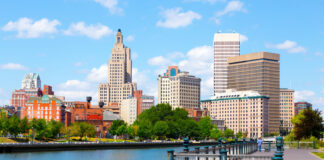.jpeg)
We have been reporting for some time in this space that the shortage of skilled workers in the U.S. has been exacerbated in recent years by the government’s decision to cut back on H-1B visas.
The quota of H-1B visas, which are reserved for highly trained technology professionals, was reduced to 65,000 due to mounting security concerns after the 9/11 attacks. In 2007 and 2008, applications for H-1B visas exceeded this quota on the first day the visas became available.
Not this year.
According to a report in the Wall Street Journal, thus far—more than six months after the U.S. government began accepting applications for 2010 H-1B visas—only 46,700 visa petitions have been filed.
Analysts are attributing this shortfall to a combination of the economic downturn, immigration security concerns, and the rising costs associated with hiring foreign-born workers.
An overall U.S. unemployment rate approaching 10 percent and double-digit unemployment in more than a dozen states has dramatically slowed expansion in the technology sector, the Journal reports.
According to the Journal, conditions attached to federal bailout funds also have deterred bailout recipients from recruiting foreign workers. Companies that receive federal bailout money must prove that they tried to recruit American workers at prevailing wages and that foreigners aren’t replacing U.S. citizens. This restriction reportedly caused Bank of America and others to rescind numerous job offers to foreigners.
Crackdowns on illegal immigration also have had a dampening effect on visa applications. The U.S. Citizenship and Immigration Services, which administers the H-1B program, has been sending inspectors to visit companies without warning to verify that H-1B employees are performing the jobs on the terms specified. Up to 20,000 companies have been targeted for these inspections.
The restrictive climate on immigration apparently is leading some foreign students to reconsider whether they want to pursue careers in the United States.”The best and the brightest who would normally come here are saying, why do we need to go to a country where we are not welcome,” a University of California scholar who has studied H-1B visas told the Journal.













![[VIDEO] Get More for Your Business in Ardmore. Oklahoma](https://businessfacilities.com/wp-content/uploads/2024/02/maxresdefault-324x160.jpg)
